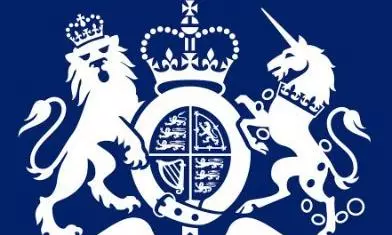
The Foreign, Commonwealth and Development Office of the UK has said they do not agree with India’s decisions (X Photo; courtesy @FCDO_RBLX)
Don't agree with India’s decision resulting in Canadian diplomats’ exit: UK
Taking a critical stance over India’s diplomatic spat with Canada, the UK government has said that the diplomats’ exit was against the Vienna Convention.

In a rebuff to India, the UK government has expressed its disagreement with Indian government decisions, which it believes resulted in the departure of Canadian diplomats amid an ongoing standoff between India and Canada over the killing of a Sikh separatist.
The move impacted the effective functioning of the Vienna Convention on Diplomatic Relations, a statement from the Foreign, Commonwealth and Development Office (FCDO) said on Friday (October 20). “Resolving differences requires communication and diplomats in respective capitals. We do not agree with the decisions taken by the Indian government that have resulted in a number of Canadian diplomats departing India,” reads the FCDO statement.
The statement came after Canada said it had withdrawn 41 diplomats following an alleged Indian threat to unilaterally revoke their status amid strained bilateral relations over Prime Minister Justin Trudeau’s claims of Indian agents being involved in the June murder of Canadian Sikh separatist leader Hardeep Singh Nijjar. India’s Ministry of External Affairs (MEA) has strongly rejected the allegation and also refuted any violation of the Vienna Convention in relation to the diplomats' exit.
“We expect all states to uphold their obligations under the 1961 Vienna Convention on Diplomatic Relations. The unilateral removal of the privileges and immunities that provide for the safety and security of diplomats is not consistent with the principles or the effective functioning of the Vienna Convention. We continue to encourage India to engage with Canada on its independent investigation into the death of Hardeep Singh Nijjar,” the statement said.
The statement followed the US government also backing Canada over the standoff, with the State Department saying they are “concerned” by the departure of Canadian diplomats from India.
The MEA rejected all attempts to portray the implementation of diplomatic parity as a violation of international norms. “The state of our bilateral relations, the much higher number of Canadian diplomats in India, and their continued interference in our internal affairs warrant parity in mutual diplomatic presence in New Delhi and Ottawa,” the MEA said in a statement on Friday (October 20).
Both the UK and the US are part of the ‘Five Eyes’ network. It is an intelligence alliance consisting of the United States, United Kingdom, Australia, Canada and New Zealand and uses both surveillance-based and signals intelligence (SIGINT).
The diplomatic spat between India and Canada was triggered following Trudeau’s statement in the Canadian Parliament last month that its security forces were “actively pursuing credible allegations” linking Indian government agents to the murder of Khalistan Tiger Force leader and wanted terrorist in India Hardeep Singh Nijjar on June 18 in British Columbia of Canada. The allegation was strongly rejected by the MEA as “absurd and motivated”.
On Friday, Trudeau told reporters in a televised press conference that the Indian government is making it “unbelievably difficult” for life as usual to continue for millions of people in India and in Canada. Earlier, the Canadian authorities also warned of a slowdown in visa processing times due to the reduction of employees at its diplomatic missions in India.
(With agency inputs)

